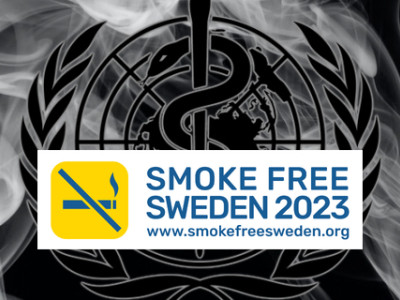According to the press release, The 2018 Harm Reduction Focus Report “highlights BAT’s continued commitment to contributing to tobacco harm reduction. It demonstrates how the company has made tremendous progress in its long-held ambition to provide consumers with less risky tobacco and nicotine choices.”
BAT claims the report highlights its contribution “to harm reduction by continuously investing in innovation,” and the building of “reliable evidence”. Historically, tobacco company research tends to be ignored or criticised by tobacco control – but, as we have seen over the last couple of years, the evidence being produced by the industry is immeasurably and consistently of a higher standard than the junk science coming from (mainly) American tobacco control-funded studies.
The report demonstrates that its studies lie in accordance with independent studies, and it states: “There is growing consensus among many public health bodies and academics that vapour products can have a significantly reduced risk profile compared to smoking. Public Health England in the UK estimates these products are ‘95% less harmful than smoking’. Other third-party science and research supporting the significantly reduced-risk potential of these continue to grow around the world.”
It cites Health Canada: “Vaping is less harmful than smoking. Completely replacing cigarettes with a vaping product will significantly reduce a smoker’s exposure to toxic and cancer-causing chemicals.”
And it goes on to reference The U.S. National Academies of Sciences, Engineering, and Medicine: “There is conclusive evidence that completely substituting e-cigarettes for ... cigarettes reduces users’ exposure to numerous toxicants and carcinogens present in cigarettes.”
Other organisations referenced include The UK Committee on Toxicity of Chemicals in Food, Consumer Products and the Environment, German Federal Institute for Risk Assessment, and The UK Committee On Toxicity.
Illustrating how the roles of tobacco companies and tobacco control have seemingly made a 180-degree switch, the report also highlights the facts that tobacco control refuse to acknowledge when it comes to snus: “There is substantial evidence that using snus exclusively has significantly reduced risk compared to smoking1, and experts often speak of the ’Swedish experience‘ in the context of successful harm reduction. In Sweden in the 1970s and 1980s, there was a gradual shift from cigarette smoking to snus use, particularly among Swedish men, with a reduction in smoking-related disease rates seen decades later.”
“Today, Sweden’s overall daily consumption of tobacco is close to the daily EU average, but it has by far the lowest rates of smoking in Europe. Sweden also has the lowest rates of tobacco-related diseases. Many authorities, including those outlined below, have cited the widespread availability of snus as a key factor in Sweden’s move away from cigarettes.”
Nicandro Durante, Chief Executive of British American Tobacco, commented: “At BAT, we’re committed to transforming tobacco by providing consumers with satisfying alternatives to smoking. Without the right products, tobacco harm reduction will never be a reality, which is why our approach is centred on developing an outstanding product portfolio.”
“But these products can only meet their potential if the right regulatory and market conditions are in place. Stakeholders from across government, industry and public health need to continue to work together to create an environment for tobacco harm reduction to be successful.”
“As I come to the end of my eight-year tenure as CEO of this fantastic company I am immensely proud of the progress we have made with regards to harm reduction. But this is just the beginning of BAT’s mission to transform tobacco.”
Tobacco controllers will cite the tobacco industry’s history as justification for opposing the development of alternative nicotine products but, as can be seen from Durante’s comments, the interests of BAT lie in common with that of harm reduction advocates and vapers.
BAT’s The 2018 Harm Reduction Focus Report can be found here: http://bit.ly/2018FocusReport
Dave Cross
Journalist at POTVDave is a freelance writer; with articles on music, motorbikes, football, pop-science, vaping and tobacco harm reduction in Sounds, Melody Maker, UBG, AWoL, Bike, When Saturday Comes, Vape News Magazine, and syndicated across the Johnston Press group. He was published in an anthology of “Greatest Football Writing”, but still believes this was a mistake. Dave contributes sketches to comedy shows and used to co-host a radio sketch show. He’s worked with numerous vape companies to develop content for their websites.
Join the discussion
Harm Reduction For The Rich
The United Kingdom risks becoming a harm reduction country only for the wealthy, according to Michael Landl of the World Vapers’ Alliance
CAPHRA Highlights Tobacco Control Flaws
The Coalition of Asia Pacific Tobacco Harm Reduction Advocates highlights the flaws in tobacco control which has led to the rise of black market in Australia
A Missed Opportunity at COP10
The Smoke Free Sweden movement says that COP10 was a missed opportunity to save millions of lives
COP10: Promote Tobacco Harm Reduction
Experts with Smoke Free Sweden are emphasising the urgent need for a Tobacco Harm Reduction approach at COP10












